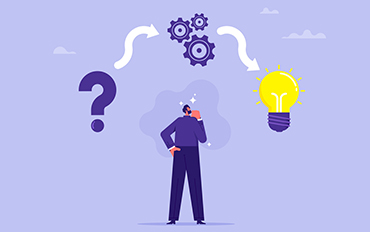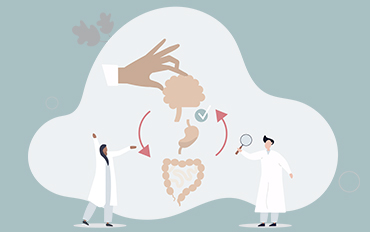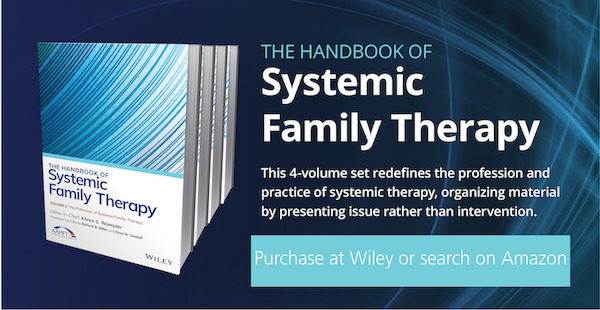
CURRENT ISSUE MAY/JUNE 2024 VOLUME 23, NO. 3
Mental Health in the Workplace

CURRENT ISSUE MAY/JUNE 2024 VOLUME 23, NO. 3
Mental Health in the Workplace

CURRENT ISSUE MAY/JUNE 2024 VOLUME 23, NO. 3
Mental Health in the Workplace

CURRENT ISSUE MAY/JUNE 2024 VOLUME 23, NO. 3
Mental Health in the Workplace

CURRENT ISSUE MAY/JUNE 2024 VOLUME 23, NO. 3
Mental Health in the Workplace

CURRENT ISSUE MAY/JUNE 2024 VOLUME 23, NO. 3
Mental Health in the Workplace

CURRENT ISSUE MAY/JUNE 2024 VOLUME 23, NO. 3
Mental Health in the Workplace

CURRENT ISSUE MAY/JUNE 2024 VOLUME 23, NO. 3
Mental Health in the Workplace
FEATURES
From Exhaustion to Empowerment: A Therapist’s Guide to Supporting Clients Through Burnout
Maria, 34, comes into your office and slumps into the couch opposite you. She looks drained, and you notice that her outfit seems a little less put-together than usual. Something is clearly going on. She immediately dives into how “over work” she is, citing a micromanaging boss, unrealistic expectations, and no time off to speak of. A job that only five months ago had her brimming with joy has become a slog. Is it depression? Not yet. If unmanaged, burnout can quickly become clinical depression.
Megan Delp, MMFT
A Systems Approach to Understanding Mental Health in the Workplace
Understanding mental health in the workplace requires an exploration of the multilayered individual, familial, and environmental factors associated with well-being. Bronfenbrenner’s ecological theory on human development offers a holistic framework and identifies five levels of impact: microsystem, mesosystem, exosystem, macrosystem, and chronosystem. The microsystem, the most influential level, refers to personal domains and direct contact with the family or in the home environment.
Shatavia Alexander Thomas, DMFT
A Systems Perspective on the Firefighter Mental Health Crisis
I spoke with John Nicoletti about the phenomenon of well-meaning but under-informed therapists. He responded to the Columbine and Aurora theatre shootings and does debriefings for law enforcement after traumatic events. When I called him, he was sitting in his car about to head into a debriefing. Nicoletti told me therapists often show up after mass-casualty events but he has to turn them away because they have no experience. It’s not the kind of thing you can just “show up” to, like volunteering to hand out blankets and water bottles after a natural disaster.
Angela Nauss, MA
Feature
Why Therapists Need to Get Paid: An MFT Private Practitioner’s View
I would like to offer a candid, behind-the-scenes look at the way therapists get paid. As a marriage and family therapist who transitioned from a solo private practice to a group practice, I will highlight the unique challenges we face in getting paid and provide insight into the myths and limitations of our earnings. Like other professionals, therapists in private practice are compensated for their work, but only for the time spent with a client: our livelihood is directly tied to clients attending sessions.
Vanessa Bradden, MSMFT
NEWS FROM AAMFT
Departments
Ethics + Legal
Revisiting Records: Guidance and Consideration on Best Practices
State Boards are often sparse on language defining what is required of clinicians for their clients’ records. They may not offer much in the way of guidance beyond the bare minimum of dates and types of service, and that’s because many of the record content requirements are often associated with the standard of care of the profession at a whole (and in fact, some states, such as California, will explicitly state records to be kept to “the standards of the profession”).
Perspectives
Navigating the New Era of Dating: How Marriage and Family Therapists Can Help
In the United States, 142 million adults find themselves seeking romantic connection (Campbell et al., 2023). Dating, a concept as diverse as the people who engage in it, has evolved across generations, influenced by cultural shifts and historical milestones. Fueled by evolving societal norms, rebellion against traditional courtship, global events, and technological leaps, dating in the U.S. has transformed dramatically over the past half-century.
Eman Tadros, PhD
Perspectives
The gut-brain axis is the communication network that links cognitive and emotional processing of the brain to the body’s gastrointestinal functions. The bedrock of this axis is bidirectional communication between the central nervous system and the enteric nervous system.
Jerrod Brown, PhD
Noteworthy
Leadership Symposium Recap & A Member Poem
March 13 – 16, AAMFT held its 2024 Leadership Symposium in Phoenix, Arizona. Attendees began the event with a community service project, packing hygiene kits for Veterans in need with the organization Veterans Helping Veterans – Hygiene for the World.
Systemic World
In July 2023, over a thousand psychotherapists from over 50 countries and of every orientation gathered in Assisi (Italy) for three days to celebrate family therapy, its impact and potential, and to exchange ideas. The conference was entitled Family Therapy: The Road that Connects Individual and Social Resources. It was initiated by the Accademia di Psicoterapia della Famiglia in Rome, and was sponsored by the American Academy of Marital and Family Therapy (AAMFT), the Australian Academy of Family Therapy (AAFT), the Asian Academy of Family Therapy (AAFT), the European Family Therapy Academy (EFTA), and the World Association of Social Psychiatry (WASP).
Maurizio Andolfi and the International Faculty
Special to This Issue
An American Take on the Manifesto
Let me paint a picture for you of the Assisi Conference last July 2023, which spawned the Manifesto: Imagine an auditorium with banked seats, a thousand enthusiastic family therapists waiting for a plenary to begin. People are chatting in many different languages. People are getting up to hug old friends and shake hands with new ones.
Mary Hotvedt, PhD
A Message from the President
Happy Spring/Summer Dear Members!
As fellow humans subject to mental health conditions ourselves, career and workplace challenges are areas that I trust we can universally agree we share with our clients.
Silvia Kaminsky, MSEd
“
FTM is a connector to and from diverse family therapy practice, policy, supervision, and research leaders.
 —Angela Lamson, PhD, LMFT
—Angela Lamson, PhD, LMFT
“
With cutting-edge and relevant articles, the FTM is the place I find practical systemic information.
 —DeAnna Harris-McKoy, PhD
—DeAnna Harris-McKoy, PhD
“
The magazine is great because it shows what other remarkable things my fellow colleagues are doing in the field.
 —Sheldon Jacobs, PsyD, LMFT
—Sheldon Jacobs, PsyD, LMFT







 On the AAMFT Blog:
On the AAMFT Blog:











